Implementing Strategies at Unilever: Plastic Reduction & Analysis
VerifiedAdded on 2023/06/14
|17
|1694
|118
Report
AI Summary
This report provides a comprehensive analysis of Unilever's strategies for reducing plastic usage in its operations. It begins with an overview of the company, its existing strategic statements, and an environmental analysis using SWOT and PESTEL frameworks. The report then delves into Unilever's plastic reduction strategy, identifying strategic risks associated with its implementation, such as financial constraints, resource limitations, and technological challenges. The value chain analysis highlights primary and supportive activities, illustrating how these contribute to the overall strategy. The report concludes with recommended action steps, responsible parties, timelines, and resource allocation for successful strategy implementation, emphasizing the importance of balancing business objectives with environmental sustainability. Desklib offers this and many more solved assignments to aid students.
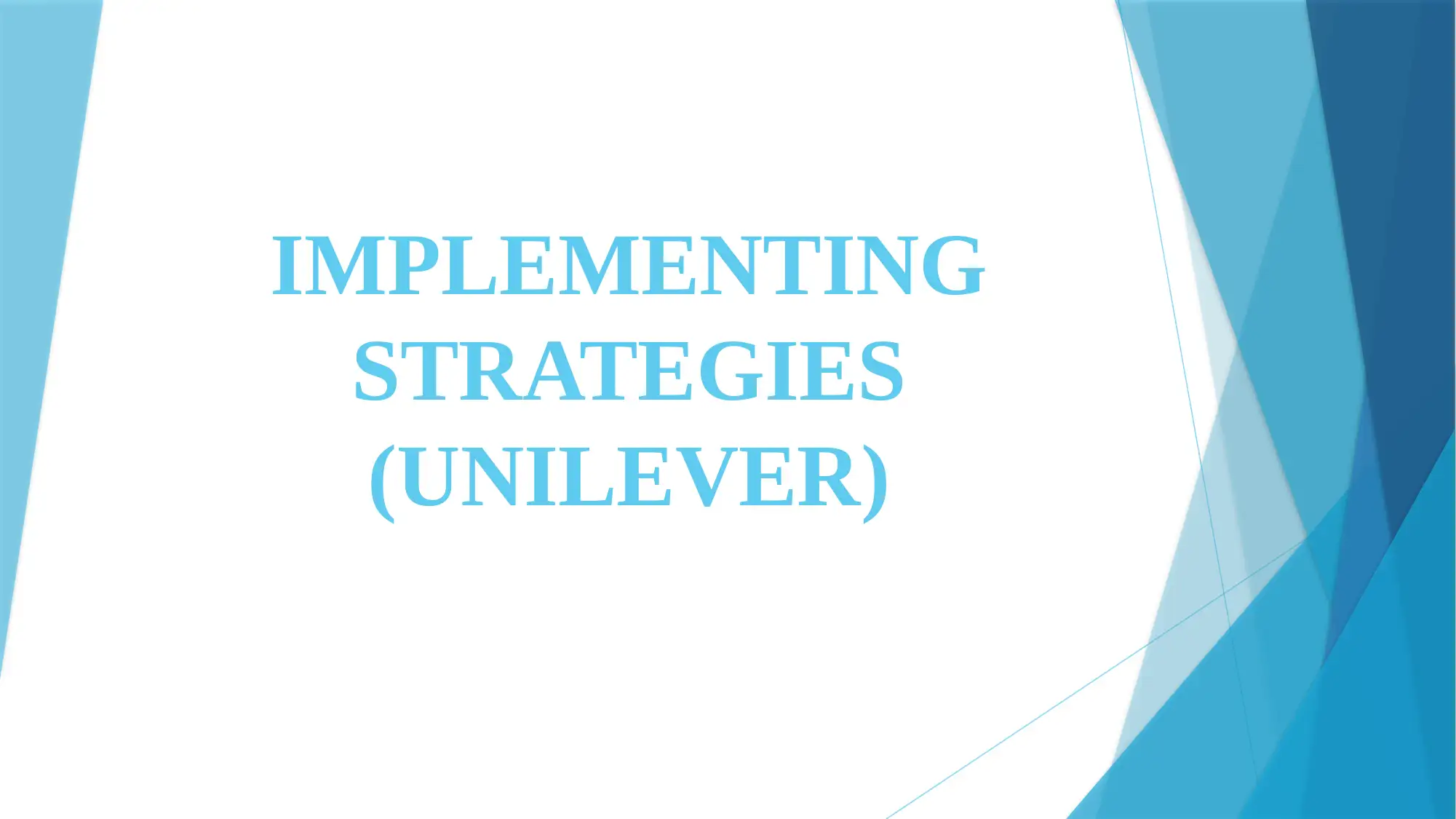
IMPLEMENTING
STRATEGIES
(UNILEVER)
STRATEGIES
(UNILEVER)
Paraphrase This Document
Need a fresh take? Get an instant paraphrase of this document with our AI Paraphraser
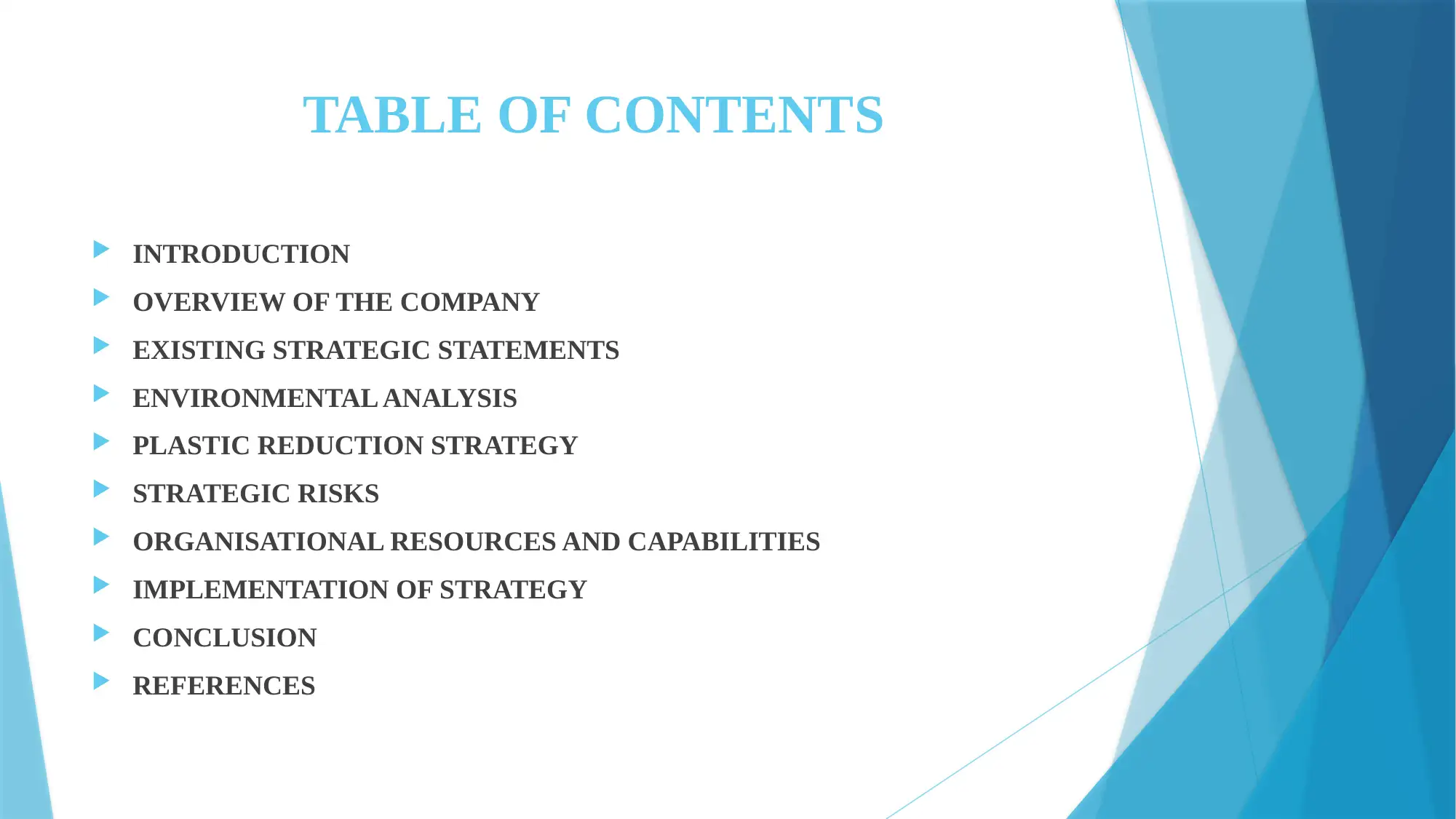
TABLE OF CONTENTS
INTRODUCTION
OVERVIEW OF THE COMPANY
EXISTING STRATEGIC STATEMENTS
ENVIRONMENTAL ANALYSIS
PLASTIC REDUCTION STRATEGY
STRATEGIC RISKS
ORGANISATIONAL RESOURCES AND CAPABILITIES
IMPLEMENTATION OF STRATEGY
CONCLUSION
REFERENCES
INTRODUCTION
OVERVIEW OF THE COMPANY
EXISTING STRATEGIC STATEMENTS
ENVIRONMENTAL ANALYSIS
PLASTIC REDUCTION STRATEGY
STRATEGIC RISKS
ORGANISATIONAL RESOURCES AND CAPABILITIES
IMPLEMENTATION OF STRATEGY
CONCLUSION
REFERENCES
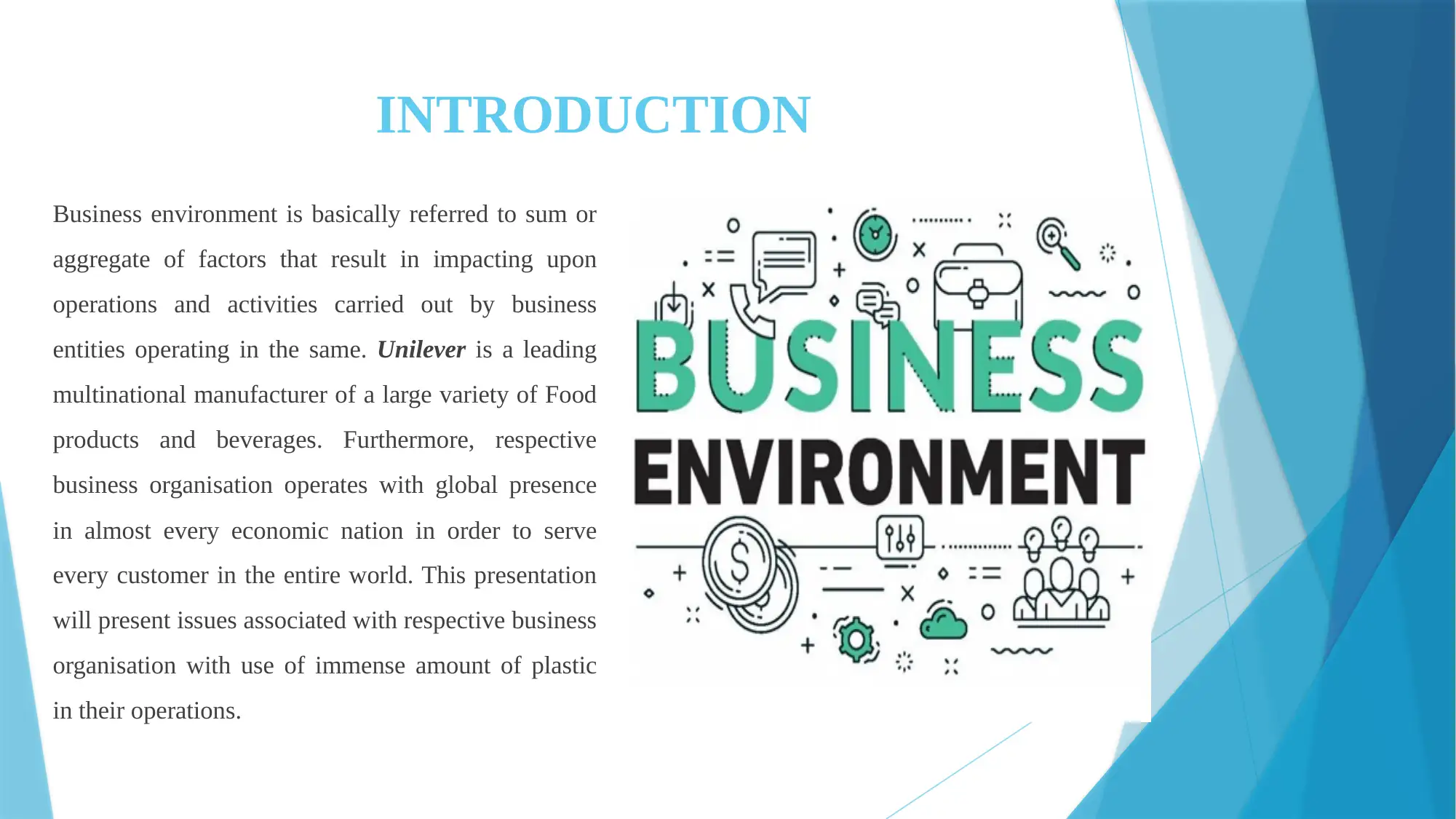
INTRODUCTION
Business environment is basically referred to sum or
aggregate of factors that result in impacting upon
operations and activities carried out by business
entities operating in the same. Unilever is a leading
multinational manufacturer of a large variety of Food
products and beverages. Furthermore, respective
business organisation operates with global presence
in almost every economic nation in order to serve
every customer in the entire world. This presentation
will present issues associated with respective business
organisation with use of immense amount of plastic
in their operations.
Business environment is basically referred to sum or
aggregate of factors that result in impacting upon
operations and activities carried out by business
entities operating in the same. Unilever is a leading
multinational manufacturer of a large variety of Food
products and beverages. Furthermore, respective
business organisation operates with global presence
in almost every economic nation in order to serve
every customer in the entire world. This presentation
will present issues associated with respective business
organisation with use of immense amount of plastic
in their operations.
⊘ This is a preview!⊘
Do you want full access?
Subscribe today to unlock all pages.

Trusted by 1+ million students worldwide
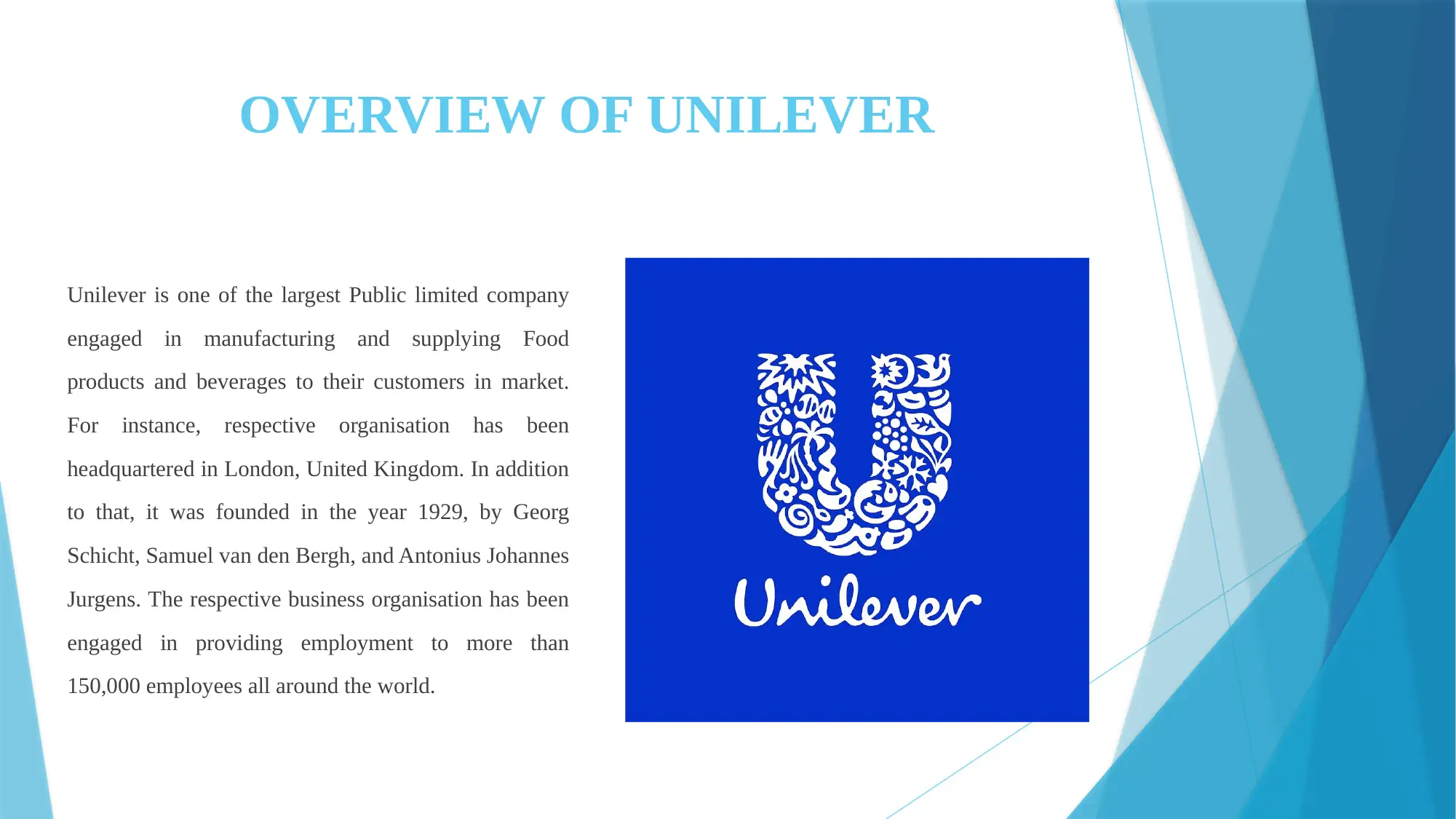
OVERVIEW OF UNILEVER
Unilever is one of the largest Public limited company
engaged in manufacturing and supplying Food
products and beverages to their customers in market.
For instance, respective organisation has been
headquartered in London, United Kingdom. In addition
to that, it was founded in the year 1929, by Georg
Schicht, Samuel van den Bergh, and Antonius Johannes
Jurgens. The respective business organisation has been
engaged in providing employment to more than
150,000 employees all around the world.
Unilever is one of the largest Public limited company
engaged in manufacturing and supplying Food
products and beverages to their customers in market.
For instance, respective organisation has been
headquartered in London, United Kingdom. In addition
to that, it was founded in the year 1929, by Georg
Schicht, Samuel van den Bergh, and Antonius Johannes
Jurgens. The respective business organisation has been
engaged in providing employment to more than
150,000 employees all around the world.
Paraphrase This Document
Need a fresh take? Get an instant paraphrase of this document with our AI Paraphraser
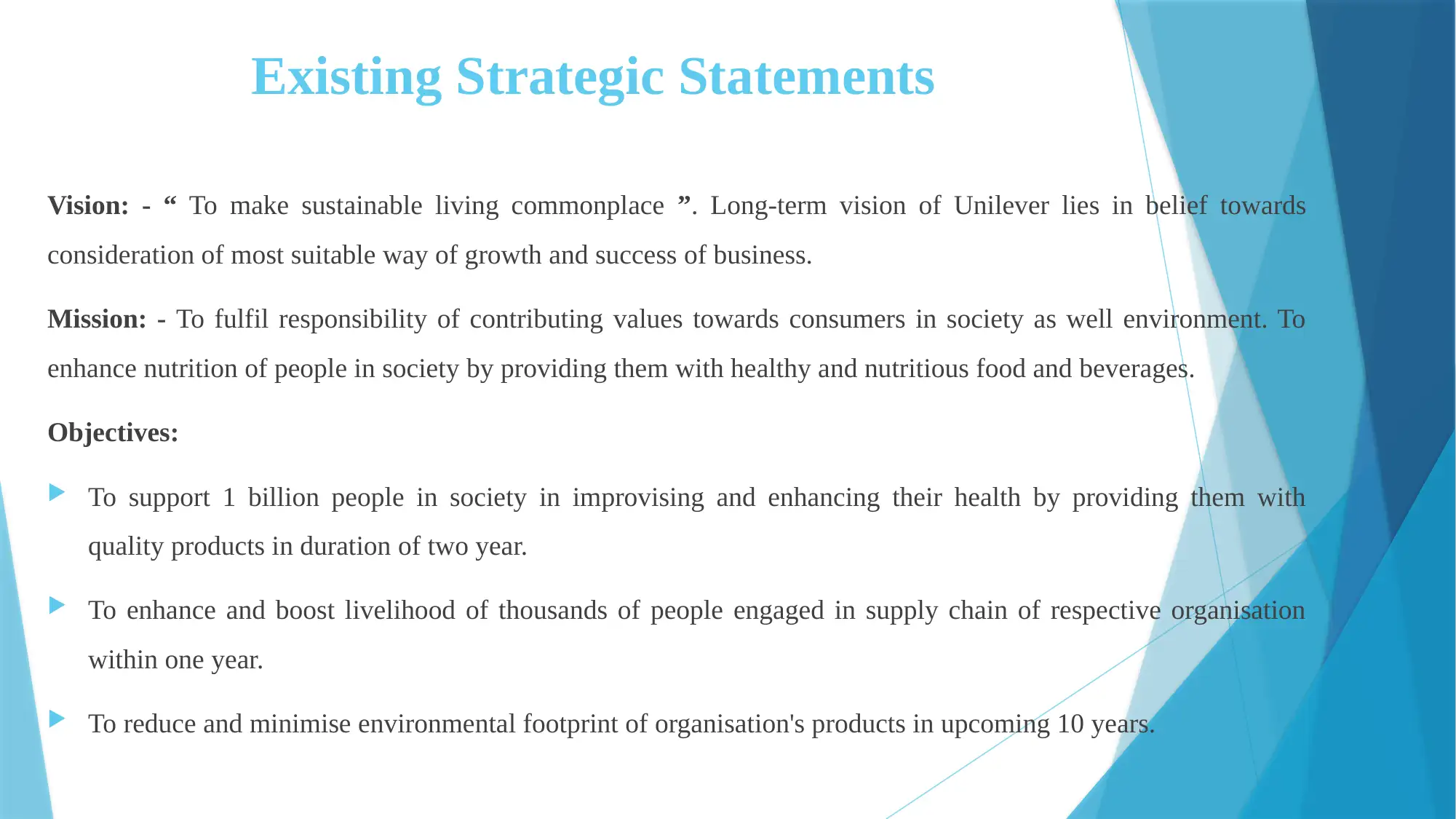
Existing Strategic Statements
Vision: - “ To make sustainable living commonplace ”. Long-term vision of Unilever lies in belief towards
consideration of most suitable way of growth and success of business.
Mission: - To fulfil responsibility of contributing values towards consumers in society as well environment. To
enhance nutrition of people in society by providing them with healthy and nutritious food and beverages.
Objectives:
To support 1 billion people in society in improvising and enhancing their health by providing them with
quality products in duration of two year.
To enhance and boost livelihood of thousands of people engaged in supply chain of respective organisation
within one year.
To reduce and minimise environmental footprint of organisation's products in upcoming 10 years.
Vision: - “ To make sustainable living commonplace ”. Long-term vision of Unilever lies in belief towards
consideration of most suitable way of growth and success of business.
Mission: - To fulfil responsibility of contributing values towards consumers in society as well environment. To
enhance nutrition of people in society by providing them with healthy and nutritious food and beverages.
Objectives:
To support 1 billion people in society in improvising and enhancing their health by providing them with
quality products in duration of two year.
To enhance and boost livelihood of thousands of people engaged in supply chain of respective organisation
within one year.
To reduce and minimise environmental footprint of organisation's products in upcoming 10 years.
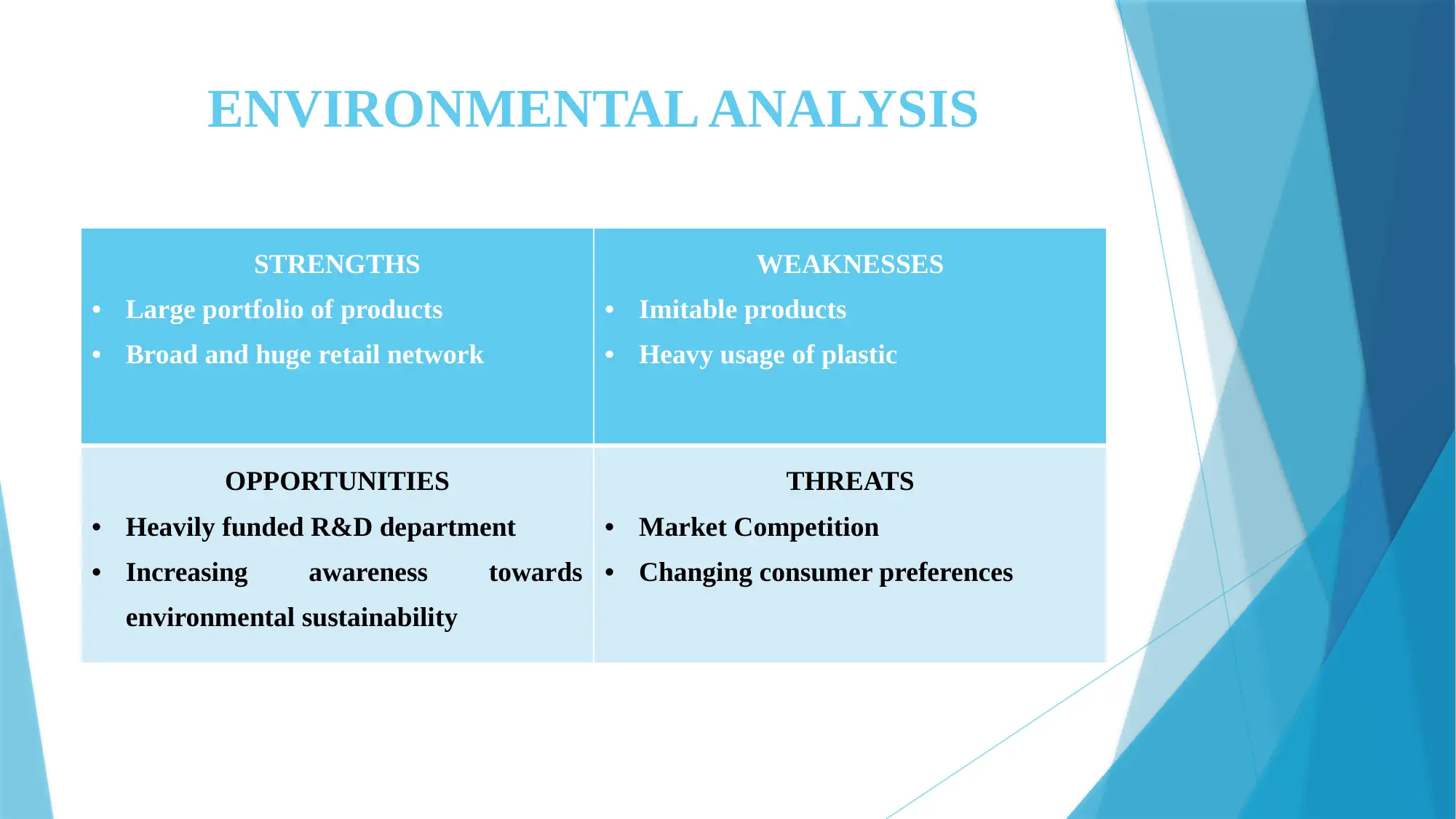
ENVIRONMENTAL ANALYSIS
STRENGTHS
• Large portfolio of products
• Broad and huge retail network
WEAKNESSES
• Imitable products
• Heavy usage of plastic
OPPORTUNITIES
• Heavily funded R&D department
• Increasing awareness towards
environmental sustainability
THREATS
• Market Competition
• Changing consumer preferences
STRENGTHS
• Large portfolio of products
• Broad and huge retail network
WEAKNESSES
• Imitable products
• Heavy usage of plastic
OPPORTUNITIES
• Heavily funded R&D department
• Increasing awareness towards
environmental sustainability
THREATS
• Market Competition
• Changing consumer preferences
⊘ This is a preview!⊘
Do you want full access?
Subscribe today to unlock all pages.

Trusted by 1+ million students worldwide
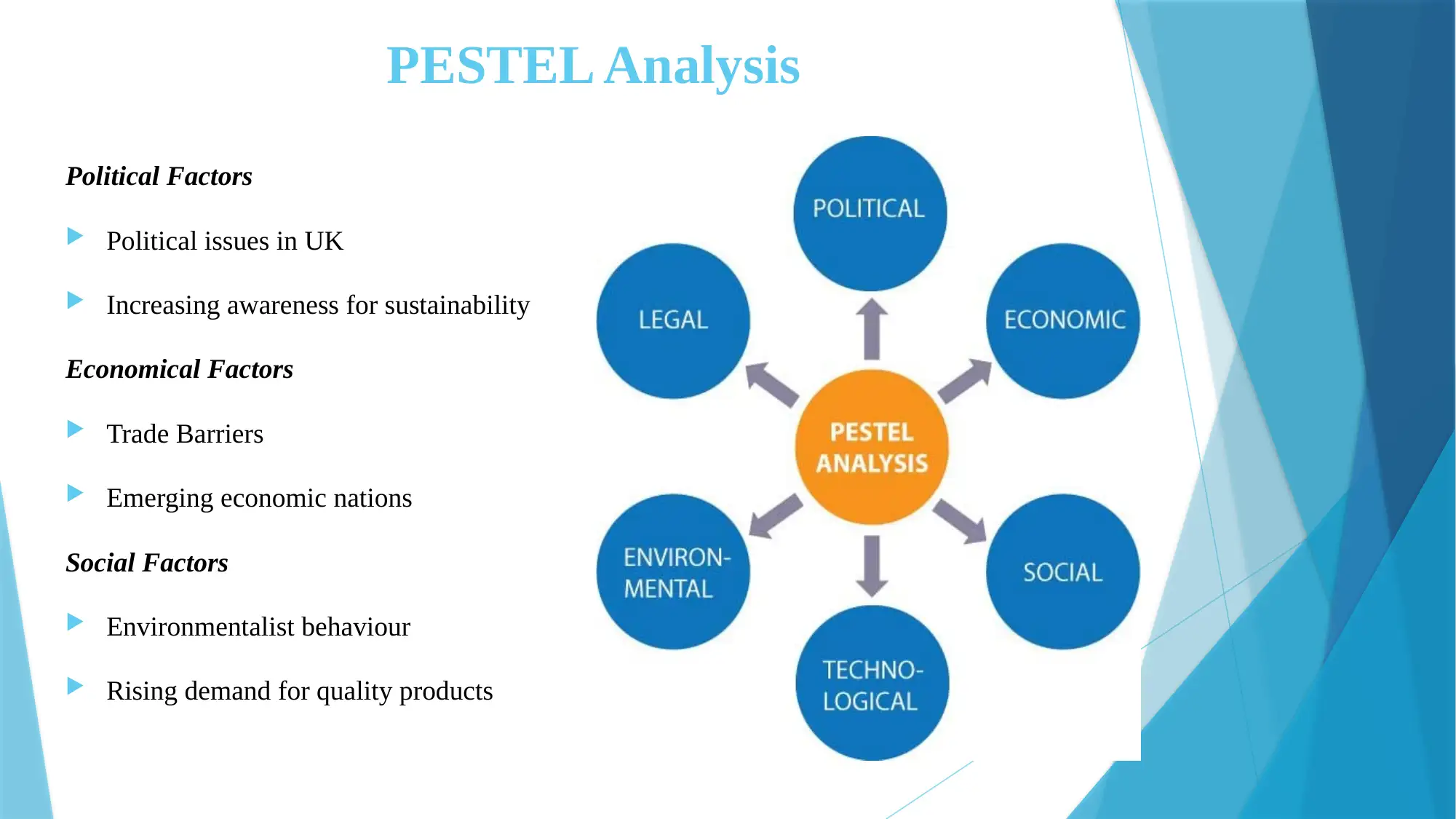
PESTEL Analysis
Political Factors
Political issues in UK
Increasing awareness for sustainability
Economical Factors
Trade Barriers
Emerging economic nations
Social Factors
Environmentalist behaviour
Rising demand for quality products
Political Factors
Political issues in UK
Increasing awareness for sustainability
Economical Factors
Trade Barriers
Emerging economic nations
Social Factors
Environmentalist behaviour
Rising demand for quality products
Paraphrase This Document
Need a fresh take? Get an instant paraphrase of this document with our AI Paraphraser
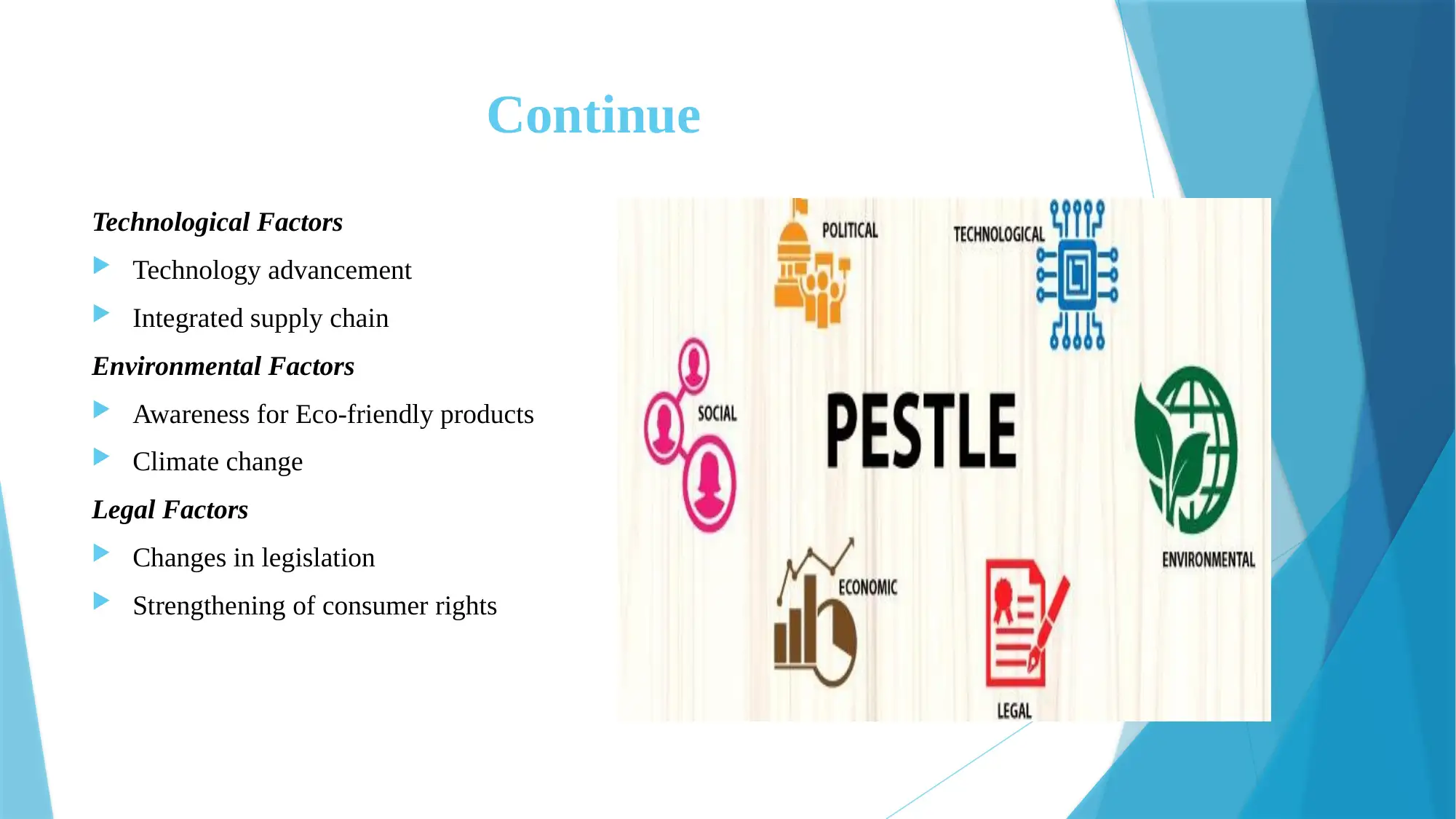
Continue
Technological Factors
Technology advancement
Integrated supply chain
Environmental Factors
Awareness for Eco-friendly products
Climate change
Legal Factors
Changes in legislation
Strengthening of consumer rights
Technological Factors
Technology advancement
Integrated supply chain
Environmental Factors
Awareness for Eco-friendly products
Climate change
Legal Factors
Changes in legislation
Strengthening of consumer rights
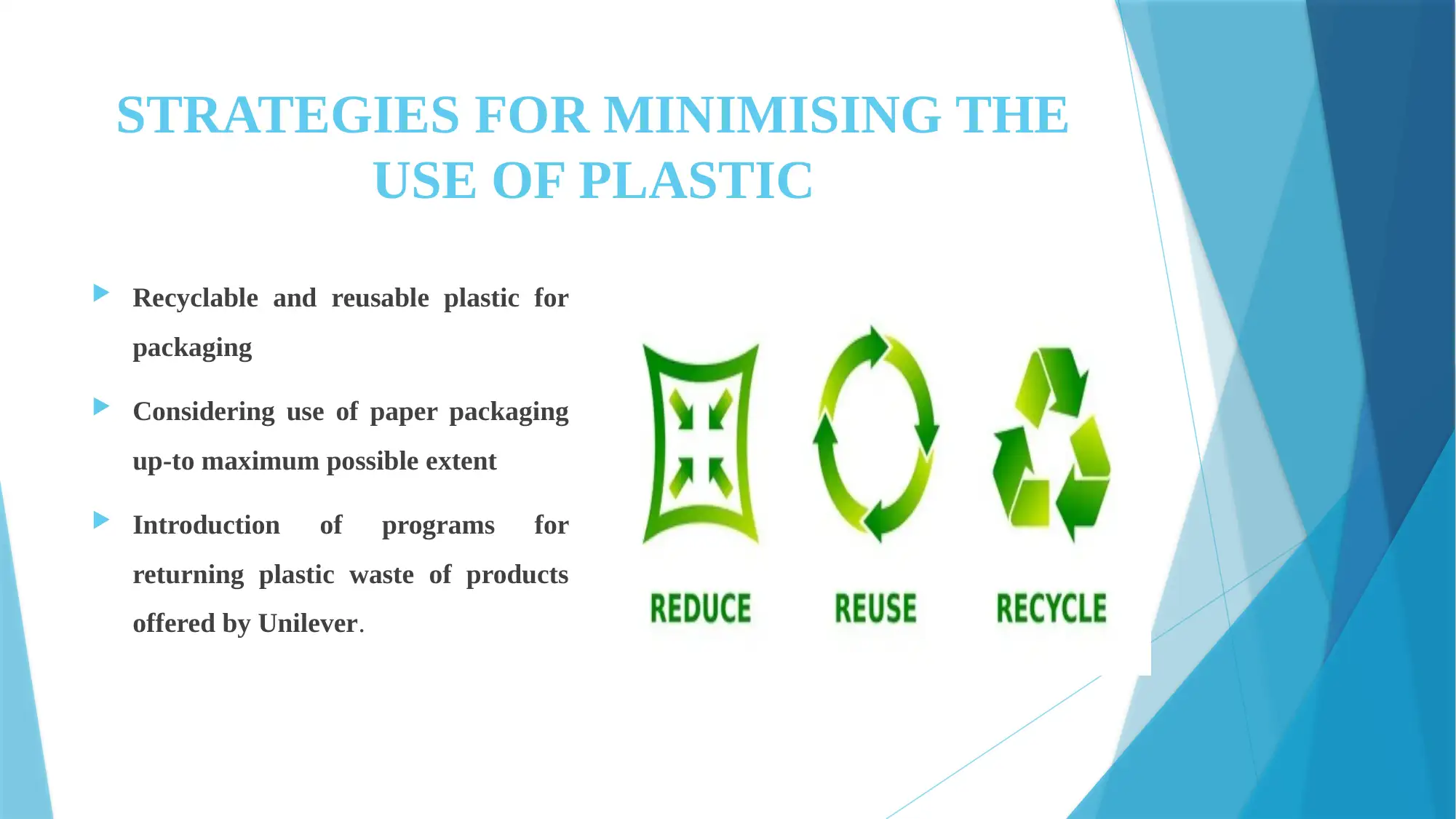
STRATEGIES FOR MINIMISING THE
USE OF PLASTIC
Recyclable and reusable plastic for
packaging
Considering use of paper packaging
up-to maximum possible extent
Introduction of programs for
returning plastic waste of products
offered by Unilever.
USE OF PLASTIC
Recyclable and reusable plastic for
packaging
Considering use of paper packaging
up-to maximum possible extent
Introduction of programs for
returning plastic waste of products
offered by Unilever.
⊘ This is a preview!⊘
Do you want full access?
Subscribe today to unlock all pages.

Trusted by 1+ million students worldwide
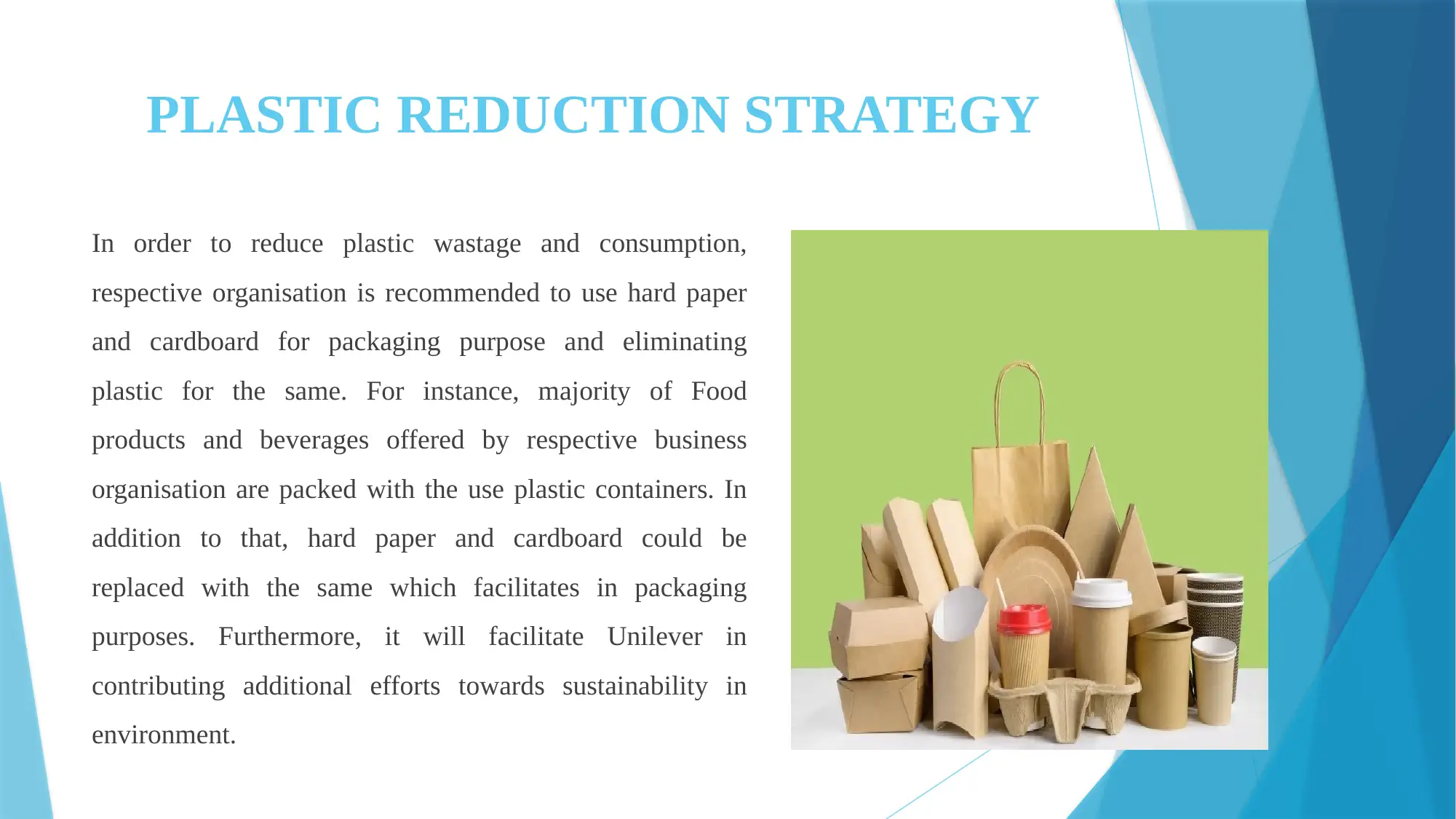
PLASTIC REDUCTION STRATEGY
In order to reduce plastic wastage and consumption,
respective organisation is recommended to use hard paper
and cardboard for packaging purpose and eliminating
plastic for the same. For instance, majority of Food
products and beverages offered by respective business
organisation are packed with the use plastic containers. In
addition to that, hard paper and cardboard could be
replaced with the same which facilitates in packaging
purposes. Furthermore, it will facilitate Unilever in
contributing additional efforts towards sustainability in
environment.
In order to reduce plastic wastage and consumption,
respective organisation is recommended to use hard paper
and cardboard for packaging purpose and eliminating
plastic for the same. For instance, majority of Food
products and beverages offered by respective business
organisation are packed with the use plastic containers. In
addition to that, hard paper and cardboard could be
replaced with the same which facilitates in packaging
purposes. Furthermore, it will facilitate Unilever in
contributing additional efforts towards sustainability in
environment.
Paraphrase This Document
Need a fresh take? Get an instant paraphrase of this document with our AI Paraphraser
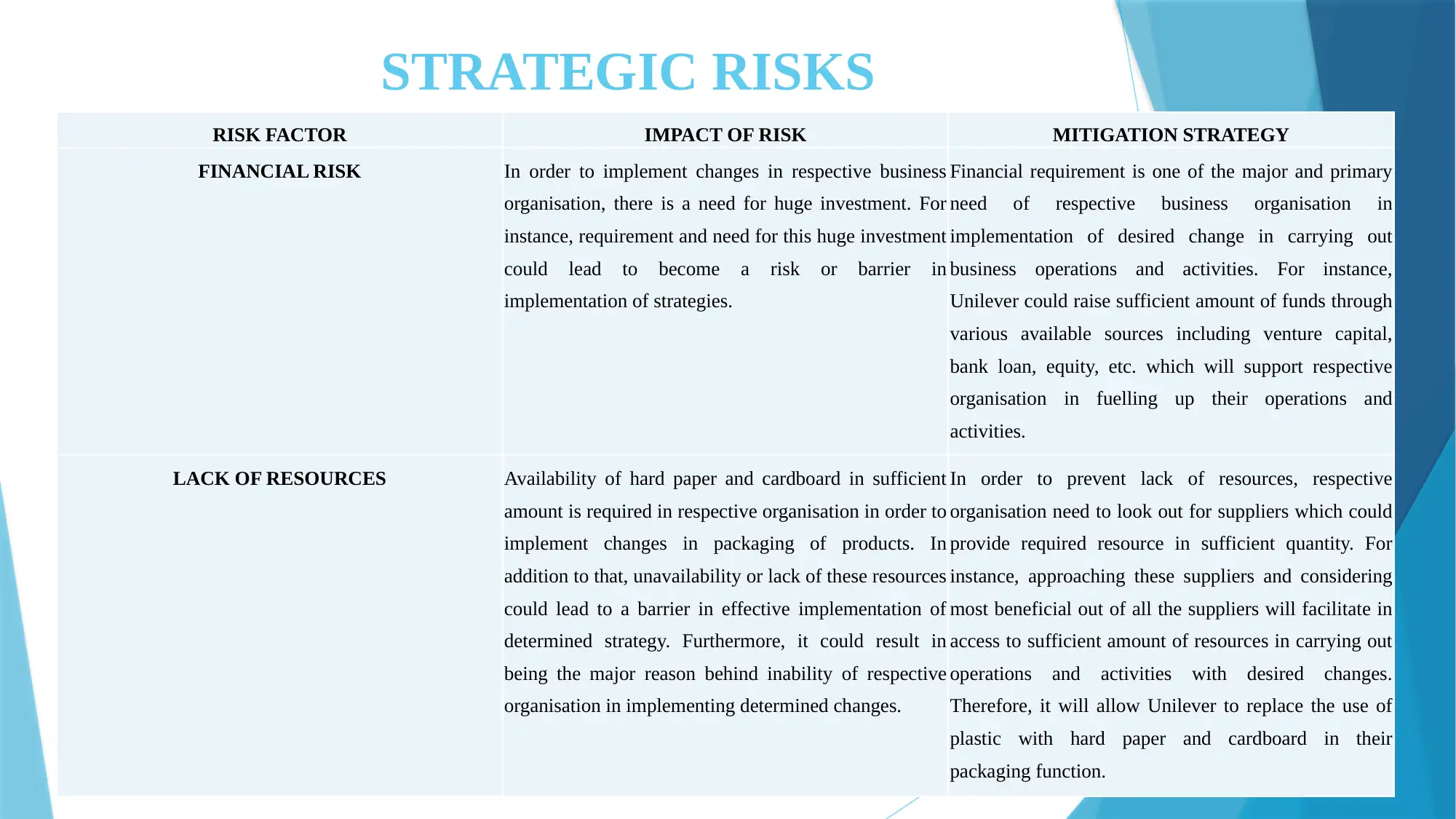
STRATEGIC RISKS
RISK FACTOR IMPACT OF RISK MITIGATION STRATEGY
FINANCIAL RISK In order to implement changes in respective business
organisation, there is a need for huge investment. For
instance, requirement and need for this huge investment
could lead to become a risk or barrier in
implementation of strategies.
Financial requirement is one of the major and primary
need of respective business organisation in
implementation of desired change in carrying out
business operations and activities. For instance,
Unilever could raise sufficient amount of funds through
various available sources including venture capital,
bank loan, equity, etc. which will support respective
organisation in fuelling up their operations and
activities.
LACK OF RESOURCES Availability of hard paper and cardboard in sufficient
amount is required in respective organisation in order to
implement changes in packaging of products. In
addition to that, unavailability or lack of these resources
could lead to a barrier in effective implementation of
determined strategy. Furthermore, it could result in
being the major reason behind inability of respective
organisation in implementing determined changes.
In order to prevent lack of resources, respective
organisation need to look out for suppliers which could
provide required resource in sufficient quantity. For
instance, approaching these suppliers and considering
most beneficial out of all the suppliers will facilitate in
access to sufficient amount of resources in carrying out
operations and activities with desired changes.
Therefore, it will allow Unilever to replace the use of
plastic with hard paper and cardboard in their
packaging function.
RISK FACTOR IMPACT OF RISK MITIGATION STRATEGY
FINANCIAL RISK In order to implement changes in respective business
organisation, there is a need for huge investment. For
instance, requirement and need for this huge investment
could lead to become a risk or barrier in
implementation of strategies.
Financial requirement is one of the major and primary
need of respective business organisation in
implementation of desired change in carrying out
business operations and activities. For instance,
Unilever could raise sufficient amount of funds through
various available sources including venture capital,
bank loan, equity, etc. which will support respective
organisation in fuelling up their operations and
activities.
LACK OF RESOURCES Availability of hard paper and cardboard in sufficient
amount is required in respective organisation in order to
implement changes in packaging of products. In
addition to that, unavailability or lack of these resources
could lead to a barrier in effective implementation of
determined strategy. Furthermore, it could result in
being the major reason behind inability of respective
organisation in implementing determined changes.
In order to prevent lack of resources, respective
organisation need to look out for suppliers which could
provide required resource in sufficient quantity. For
instance, approaching these suppliers and considering
most beneficial out of all the suppliers will facilitate in
access to sufficient amount of resources in carrying out
operations and activities with desired changes.
Therefore, it will allow Unilever to replace the use of
plastic with hard paper and cardboard in their
packaging function.
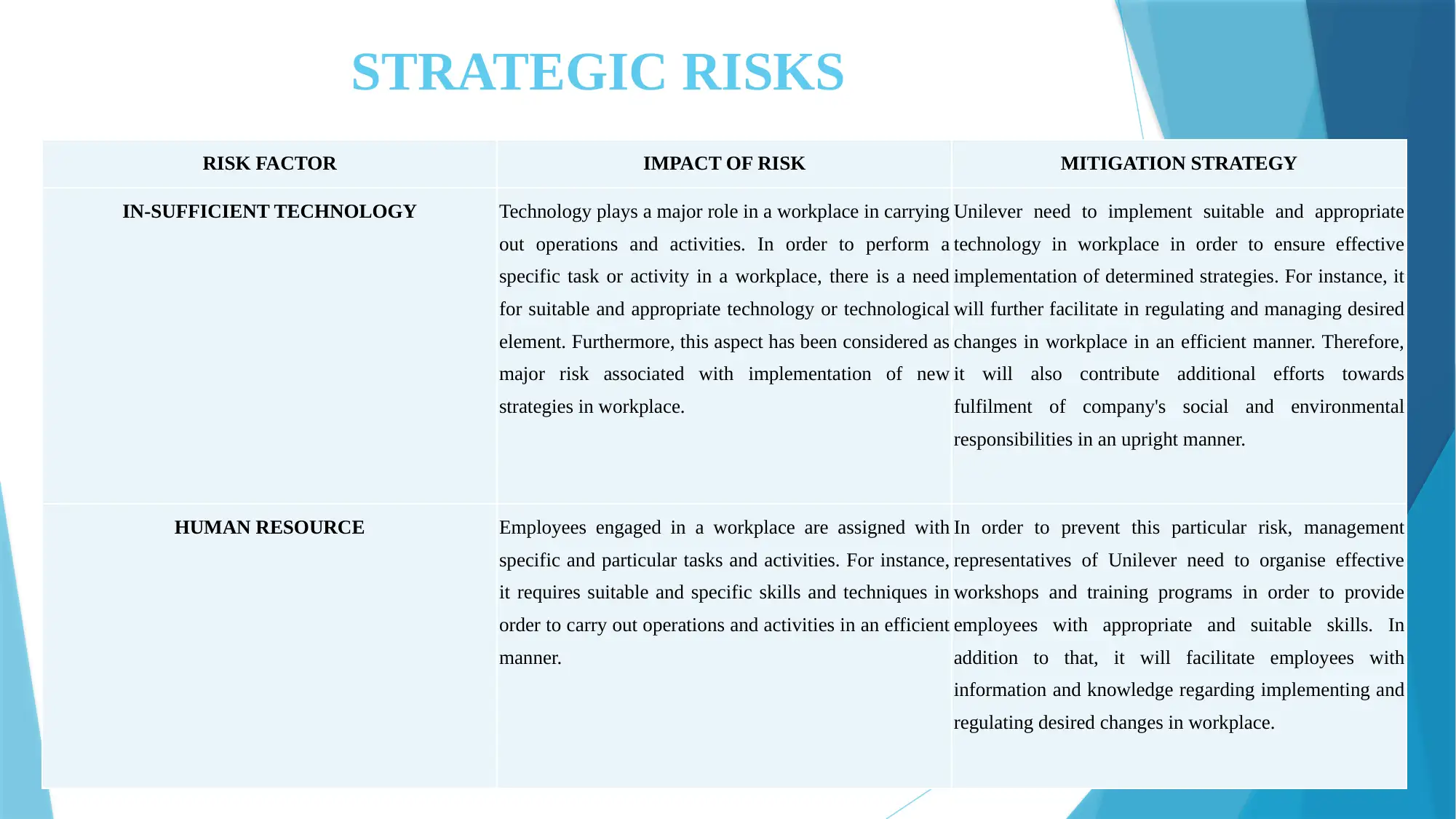
STRATEGIC RISKS
RISK FACTOR IMPACT OF RISK MITIGATION STRATEGY
IN-SUFFICIENT TECHNOLOGY Technology plays a major role in a workplace in carrying
out operations and activities. In order to perform a
specific task or activity in a workplace, there is a need
for suitable and appropriate technology or technological
element. Furthermore, this aspect has been considered as
major risk associated with implementation of new
strategies in workplace.
Unilever need to implement suitable and appropriate
technology in workplace in order to ensure effective
implementation of determined strategies. For instance, it
will further facilitate in regulating and managing desired
changes in workplace in an efficient manner. Therefore,
it will also contribute additional efforts towards
fulfilment of company's social and environmental
responsibilities in an upright manner.
HUMAN RESOURCE Employees engaged in a workplace are assigned with
specific and particular tasks and activities. For instance,
it requires suitable and specific skills and techniques in
order to carry out operations and activities in an efficient
manner.
In order to prevent this particular risk, management
representatives of Unilever need to organise effective
workshops and training programs in order to provide
employees with appropriate and suitable skills. In
addition to that, it will facilitate employees with
information and knowledge regarding implementing and
regulating desired changes in workplace.
RISK FACTOR IMPACT OF RISK MITIGATION STRATEGY
IN-SUFFICIENT TECHNOLOGY Technology plays a major role in a workplace in carrying
out operations and activities. In order to perform a
specific task or activity in a workplace, there is a need
for suitable and appropriate technology or technological
element. Furthermore, this aspect has been considered as
major risk associated with implementation of new
strategies in workplace.
Unilever need to implement suitable and appropriate
technology in workplace in order to ensure effective
implementation of determined strategies. For instance, it
will further facilitate in regulating and managing desired
changes in workplace in an efficient manner. Therefore,
it will also contribute additional efforts towards
fulfilment of company's social and environmental
responsibilities in an upright manner.
HUMAN RESOURCE Employees engaged in a workplace are assigned with
specific and particular tasks and activities. For instance,
it requires suitable and specific skills and techniques in
order to carry out operations and activities in an efficient
manner.
In order to prevent this particular risk, management
representatives of Unilever need to organise effective
workshops and training programs in order to provide
employees with appropriate and suitable skills. In
addition to that, it will facilitate employees with
information and knowledge regarding implementing and
regulating desired changes in workplace.
⊘ This is a preview!⊘
Do you want full access?
Subscribe today to unlock all pages.

Trusted by 1+ million students worldwide
1 out of 17
Related Documents
Your All-in-One AI-Powered Toolkit for Academic Success.
+13062052269
info@desklib.com
Available 24*7 on WhatsApp / Email
![[object Object]](/_next/static/media/star-bottom.7253800d.svg)
Unlock your academic potential
Copyright © 2020–2026 A2Z Services. All Rights Reserved. Developed and managed by ZUCOL.




